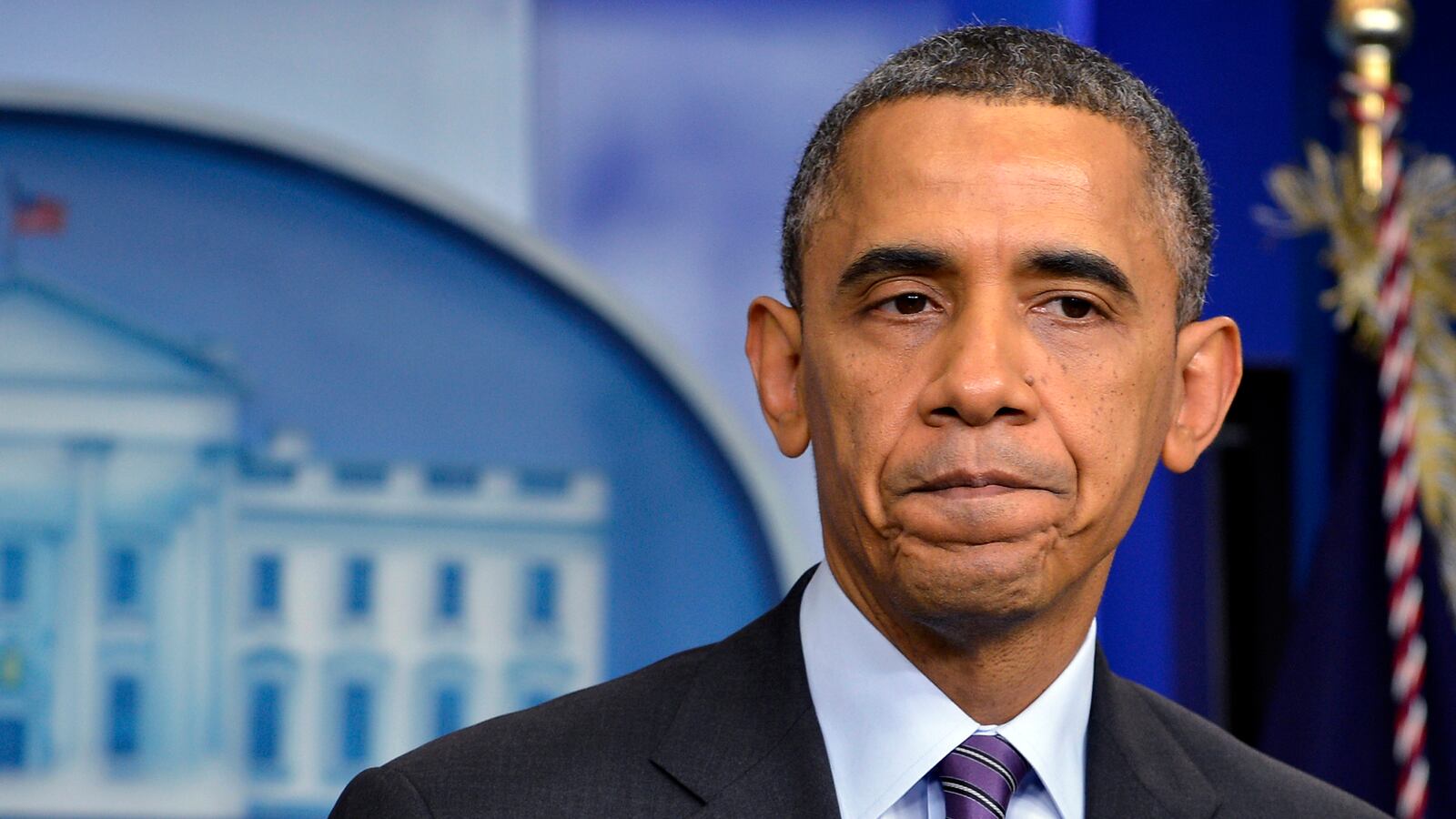
Depending on who you read, President Obama’s fifth year in office has either been “terrible,” the “worst in Washington,” a “year from hell,” or a short-step from Nixon’s fifth year, when he resigned after a lengthy investigation of his criminal behavior.
It's fair to call all of this exaggerated, but the core point is sound—2013 has been a so-so year for the president. For instance, there was the collapse of his legislative agenda. Among the casualties were universal background checks (killed by Senate Republicans), comprehensive immigration reform (mortally wounded by House Republicans), and a deal to avert the sequester.
But it would be a mistake to treat this all as a sign of things to come. When the public makes its final evaluation of a president, the particulars of each year are less important than the broad direction of his term.
Which isn’t to dismiss the failures of this year, and the toll they’ve had on Obama as a political figure. Indeed, what distinguishes 2013 from 2011 or 2012—which were also marked by divided government and congressional inaction—is the decline in Obama’s standing with the public. What began with a handful of over-hyped scandals in the spring (remember the IRS debacle?) escalated with Edward Snowden’s revelations of broad surveillance and data collection, and exploded with the initial failure of Healthcare.gov, the main consumer portal for the Affordable Care Act. On inauguration day this year, Obama had a personal favorability rating of 54.9 percent. Now? It’s down to 49 percent, with 44 percent unfavorable.
That’s not to say there weren’t positive notes. The Affordable Care Act had a terrible start, but the website has made rapid improvement, and Americans are signing up. Some observers might dismiss this activity as the “salvaging” of a “signature accomplishment”—though, it’s hard to know what else you would do with a program that hits trouble—but if Obamacare succeeds, it’s namesake will stand as one of the most consequential presidents in a generation.
Overall, however, it’s hard to call this a good year for Obama, and some pundits have used that to declare his a failed presidency, with comparisons to George W. Bush.
But here’s the problem with this: Compared to his recent predecessors, Obama’s fifth year wasn’t that terrible. George W. Bush ended 2005 with a massive hurricane that drowned an American city and killed more than a thousand people, while 1985 saw the beginnings of a scandal—Iran-Contra—that would embroil the Reagan administration for the next two years. Bill Clinton had a relatively smooth fifth year, but a terrible sixth one, as he faced public heat—and eventually impeachment—over his relationship with Monica Lewinsky.
Compared to all three, Obama’s troubles are relatively tame. More importantly, neither Iran-Contra nor impeachment were enough to dampen public affection for either president. Why? Because both Reagan and Clinton ended their presidencies with growing economies, and that is what matters to the public. A scandal-ridden president can leave popular as long as he has a solid economy to show for. After all, most people just care about their livelihoods. If, at the end of eight years, they are prospering, then—adjusting for partisanship—they are willing to show their support for an outgoing president.
Obama’s problem, more than anything, is the weak economy. Indeed, it’s not hard to imagine an alternate universe (an Earth–2, as it were) where brisk growth and low unemployment gave Obama strong approval ratings, even if nothing else changed about the details of his 2013. In terms of public opinion, a healthy economy does a lot to shield Obama from discontent over everything from the NSA to the problems with Healthcare.gov. Indeed, if not for the fact that this has been a relatively robust year for economic growth—2013 is on track to be the strongest year for job growth since 2005—Obama would be even less popular than he is now.
Which is to say that, if you want a sense of how Obama will end his tenure, look to the economy. If people have jobs, and feel secure, then Obama will leave office like Clinton—popular and well-regarded. But if the sluggish status quo persists, then the candidate of “hope and change” will likely leave as divisive as his predecessor.




